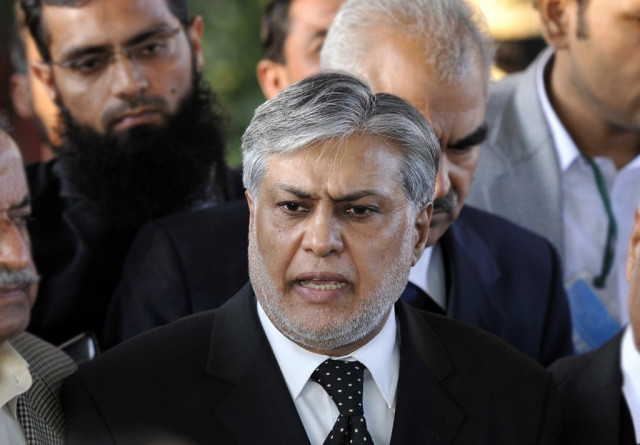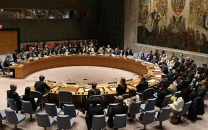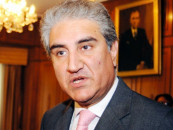Dar defends Khosa’s appointment
Says nepotism avoided, but previous govt’s policy followed.

Says nepotism avoided, but previous govt’s policy followed. PHOTO: AFP/ FILE
The government seems to be following in the footsteps of its predecessor regarding appointments at lucrative posts. Finance Minister Ishaq Dar defended on Monday the decision of his government to appoint Prime Minister’s Secretary Nasir Khosa as World Bank executive director, allegedly in violation of the rules.
“We have adopted the same procedure that the previous government followed in making the appointment,” said Ishaq Dar. He was responding to a question how an act which was considered unlawful in appointment of Raja Azeem, son-in-law of the former PM Raja Pervaiz Ashraf, was a lawful one when the government appointed Nasir Khosa on the same post.
Khosa’s appointment raised questions as to why there were two different criteria to administer justice. The Supreme Court had taken notice of Azeem’s appointment due to its non-transparent nature while Khosa’s appointment, having been made in a similar way, was justified by official channels.
Dar further said that this procedure has been in practice for the last 25 years – a statement that is contrary to the new government’s claim of correcting past mistakes. Dar did not respond to the question as to why the government violated office memorandum of Establishment Division of 2000 that makes it binding on the government to circulate the post offered by international organisations and foreign governments amongst the ministries and departments.
Former Secretary Economic Affairs Division Javed Iqbal had opposed the appointment of Raja Azeemul Haque and instead suggested to circulate the position and form a panel.
“The principles of appointments have fairly been established,” said Ali Zafar – an eminent lawyer of the Supreme Court and partner of Mandviwalla & Zafar law firm. He said that in case of appointment of Mohammad Ali, former chairman of Securities Exchange Commission of Pakistan, the Supreme Court had ruled that the office memorandums of ministries and divisions were binding in nature and deviating from these was tantamount to compromising transparency.
Published in The Express Tribune, August 27th, 2013.



















COMMENTS
Comments are moderated and generally will be posted if they are on-topic and not abusive.
For more information, please see our Comments FAQ